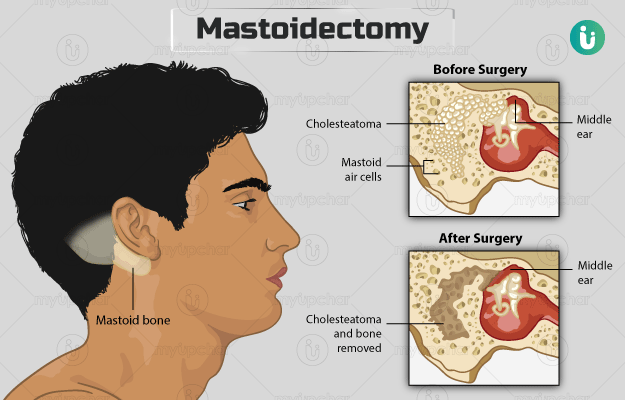Summary
Mastoidectomy is performed to remove the mastoid air cells in the ear when they get affected by infection or cholesteatoma. Before the surgery, the doctor will ask you to fast for at least six hours. During the surgery, the doctor will give you general anaesthesia to make you fall asleep during the surgery.
The surgery is performed by making an incision behind the ear and drilling inside the bone to remove the infected part. After the surgery, care should be taken to keep the operated area dry. You should contact the doctor immediately if you observe unusual symptoms like dizziness or hearing problems after the surgery. A follow-up appointment is needed after two weeks of surgery.






































